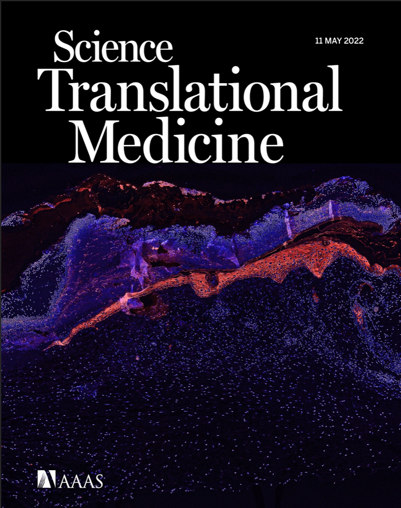FUNCTIONAL MEDICINE BLOG
Includes over 800 monographs reporting on emerging studies in the medical and scientific literature of practical clinical importance, easily searched for content.

Unresolved PTSD promotes adverse cardiovascular and brain effects
PTSD is associated with a 50% to 60% increased risk of incident CVD and elevated stroke and dementia risk.

Stress-linked mental disorders, systemic inflammation, and Brainspotting
Traumatic or emotionally charged experiences can get ‘stored’ in our nervous system, leading to emotional distress and physical symptoms. When physiological or emotional issues remain unprocessed, we can become stuck in a maladaptive biological and/or cognitive-emotional homeostasis. Brainspotting activates the trauma or stress-related emotions and memories that persist in the deeper, subcortical brain in a way that permits spontaneous processing and resolution.

Immunosenescence—immune deterioration associated with age—and social stress
Immunosenescence, the immune system deterioration associated with aging that drives the inflammation of chronic disease, can be accelerated by other factors including social stress.

Pain is often prolonged by anti-inflammatory drugs
Treatment using steroids and anti-inflammatory drugs like ibuprofen to treat low back pain can increase the risk of developing tenacious chronic pain.

Four factors shown to predict long COVID
There are four PASC (‘long COVID’)-anticipating biological factors that can be measured as early as at initial COVID-19 diagnosis, including pre-existing type 2 diabetes, SARS-CoV-2 RNAemia, EBV viremia, and autoantibodies from patients’ blood. These can help guide the prevention and treatment of long COVID.
Balancing immunity and inflammation in lung disease
Resources for both preventing serious infection and preventing damage to the lungs by the inflammation that fights infection in COVID-19 are considered.
Hypoglycemia increases inflammatory reactions, cardiovascular risk
"These data provide novel mechanistic insights into how hypoglycemia could increase CV risk through upregulation of inflammatory responses."
Leaky gut: inflammation, chronic fatigue and depression
Leaky gut permits bacterial LPS translocation into the gut lymphoid tissue where it triggers inflammation causing chronic fatigue and depression.
Circadian rhythms of inflammation
Treatment of chronic inflammation can be enhanced and adrenal suppression minimized by circadian dosing of anti-inflammatory medication.
Depression, inflammation and light therapy
Research shows relief from depression by combining management of inflammation with bright light and chronotherapy to correct circadian dysregulation.
Silicone breast implants and risk of lymphoma
Patients with an inflammatory response against silicone implants should be monitored carefully.
Insulin resistance indicated by neutrophil-lymphocyte ratio
We recommend that the NLR values of diabetic patients be calculated as NLR is a cheap, predictive, and prognostic marker for IR. High NLR values were independently related to IR.
CKD (chronic kidney disease) expected for 50% over age 30
Chronic kidney disease incidence is rising steeply and projected to affect half the population aged 30 to 64. Key causal factors are metabolic syndrome with insulin resistance and hypertension. These are made worse by added sugars than by salt.
